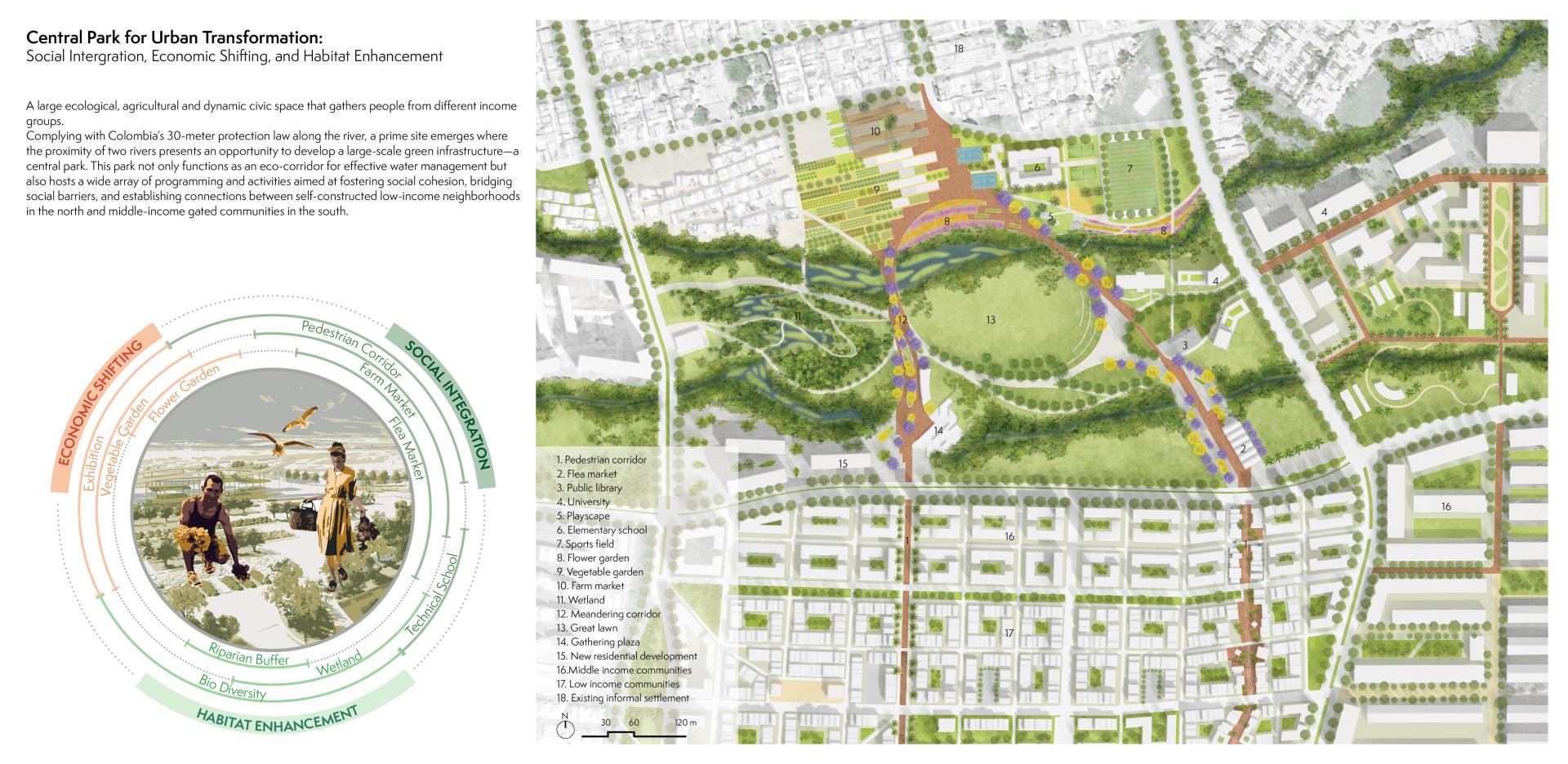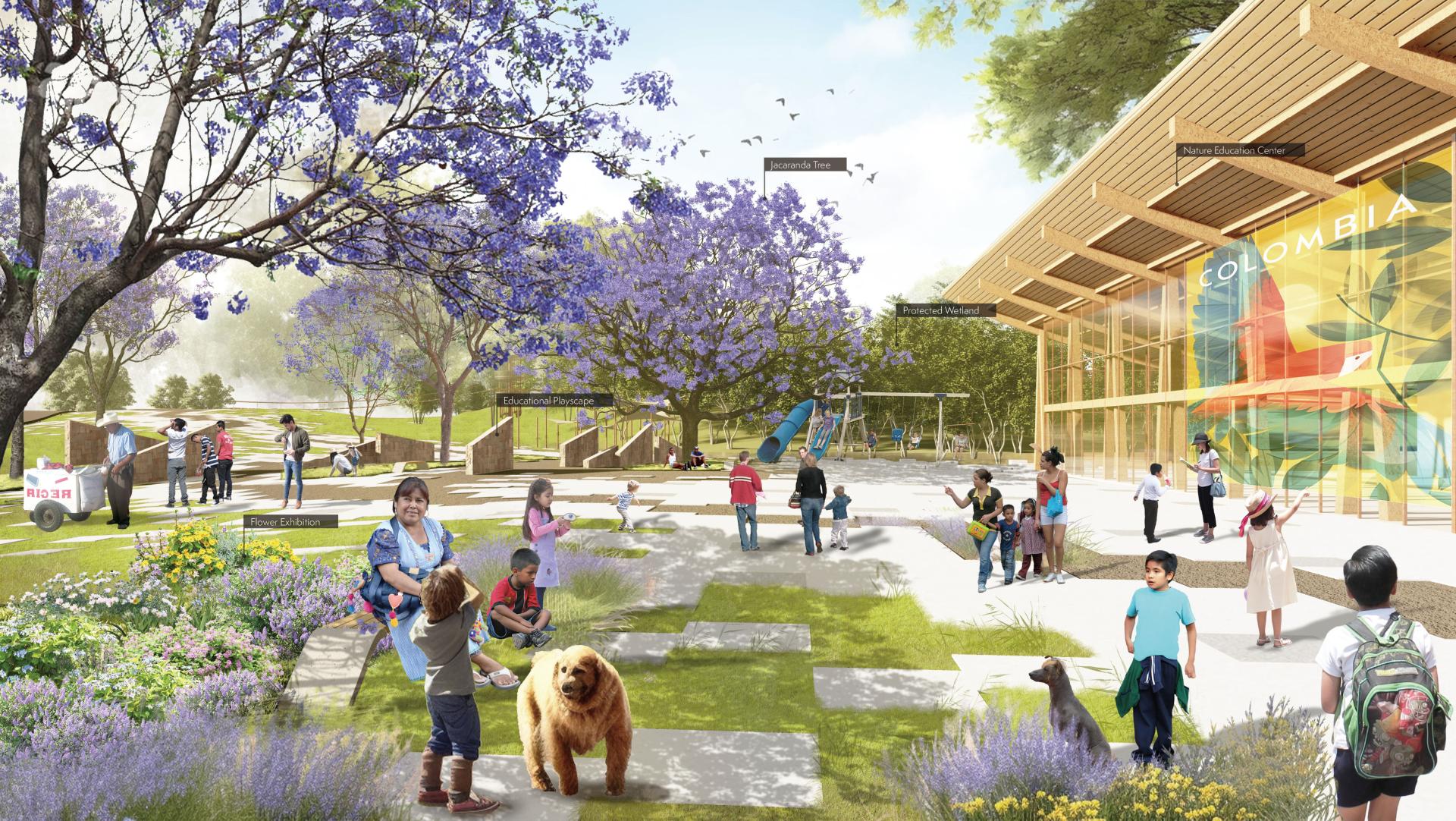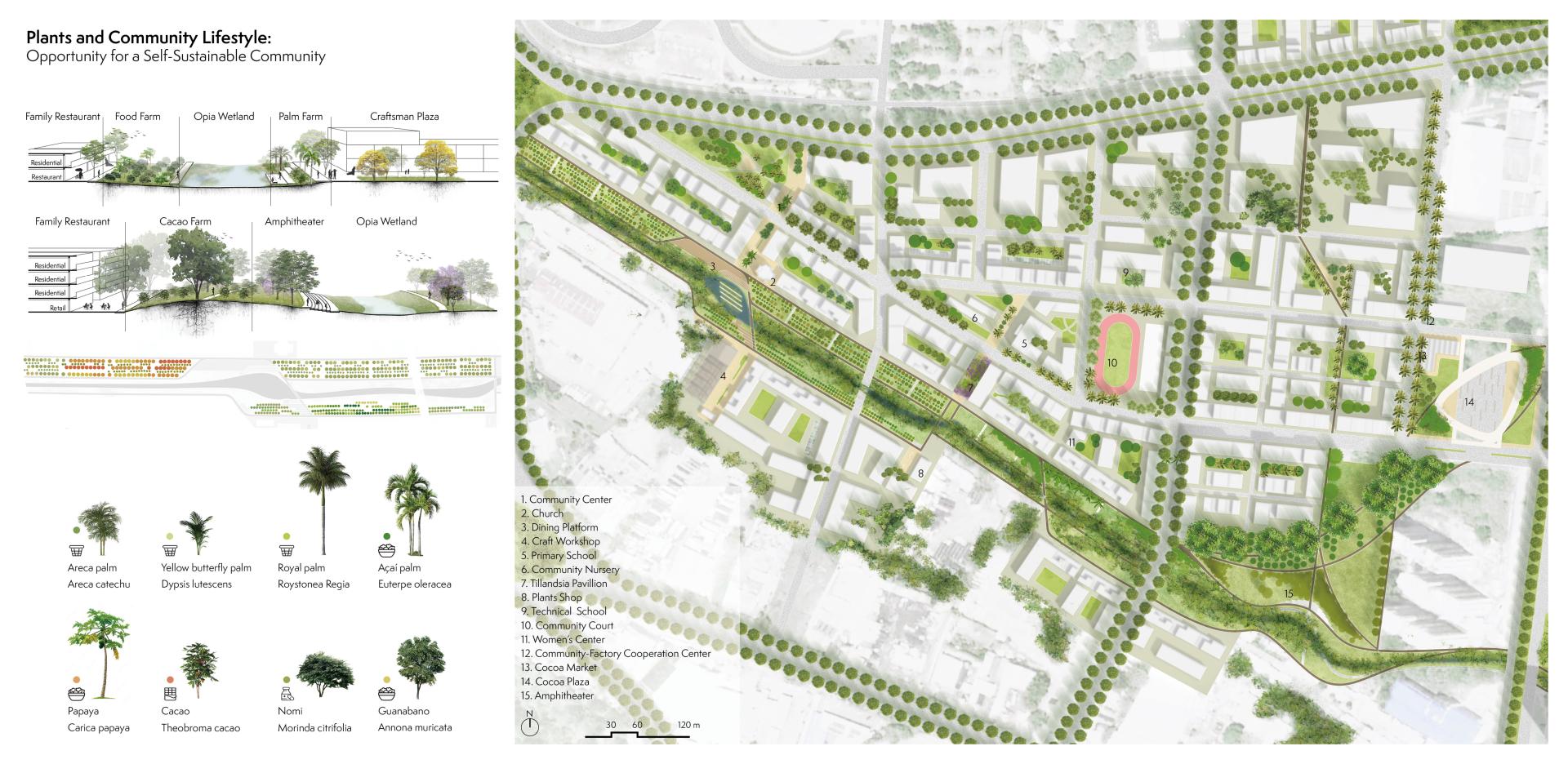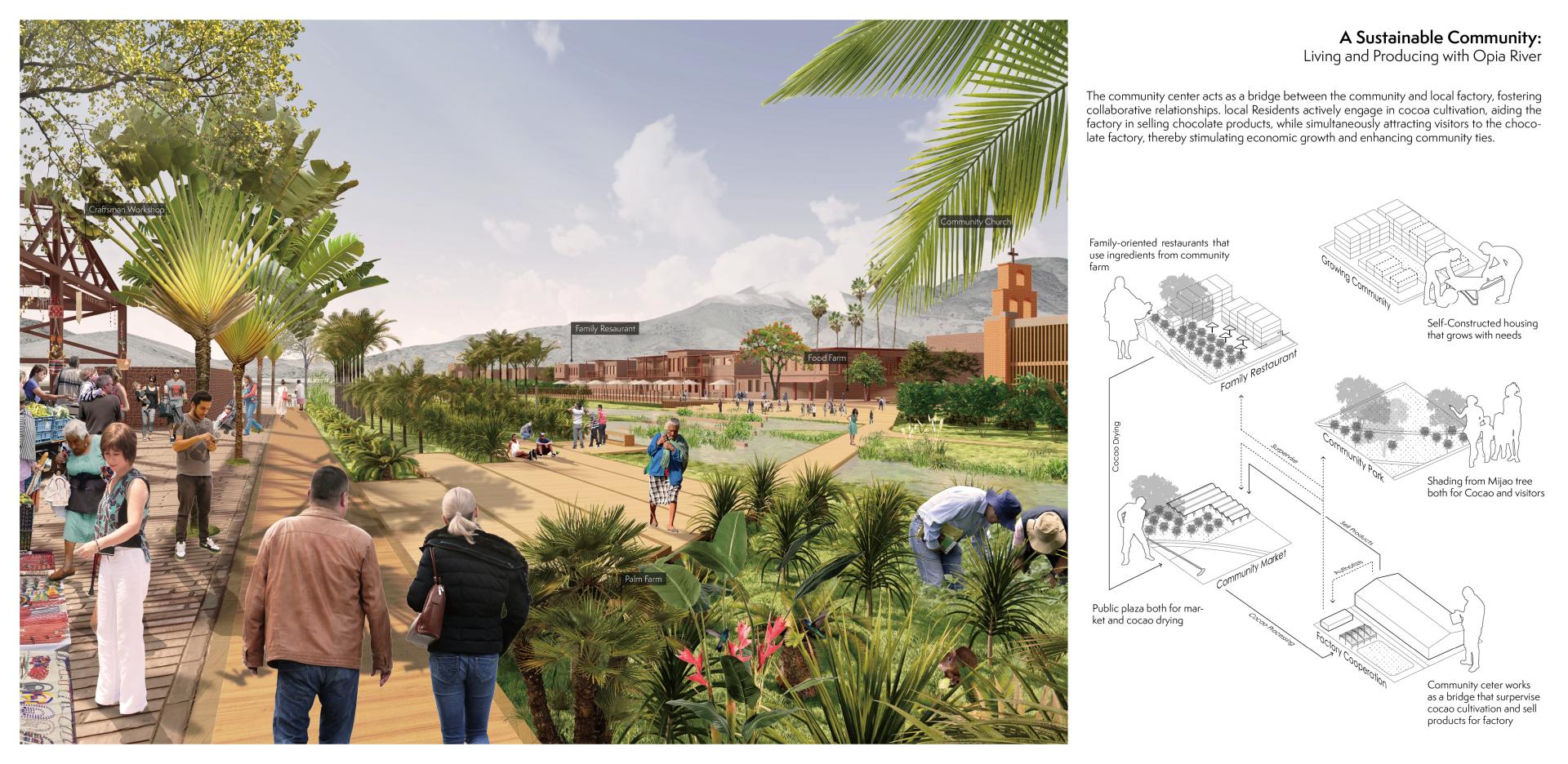2025 | Professional

Weave with Nature: Breaking Barriers
Entrant Company
Yuting Yan, Yangyi Li, Ling Zhang, Fan Wu
Category
Landscape Design - Master Planning
Client's Name
Country / Region
United States
This project addresses the complex challenges faced by Ibagué, a city in Colombia’s Central Andes, in building a sustainable and inclusive urban environment. The city struggles with polluted waterways, fragmented development, and deep social segregation. Colombia’s rapid and unequal urban growth, expanding informal settlements, and encroachment on farmland are compounded by weak infrastructure and inadequate urban planning. Balancing development with biodiversity is essential, and integrated solutions are urgently needed.
Our project site, located between two expanding urban areas and designated as Ibagué’s future city center, exemplifies these challenges. It lacks cohesive infrastructure, public spaces, and transportation systems. The surrounding hydrological network is severely polluted, underscoring the need for ecological restoration.
The proposal centers on a comprehensive green network that integrates open spaces and green infrastructure into the city’s fabric. Landscape becomes a tool to guide urban expansion, support ecological recovery, foster economic opportunities, and promote social equity. At the heart of the design is the “Central Park for Urban Transformation,” a multifunctional anchor that protects sensitive ecological areas while offering vibrant social programs. It engages surrounding communities through flea markets, partnerships with universities, farmers’ markets, and communal gardens—creating inclusive spaces that attract diverse users and strengthen community ties.
Along the Opia River, the “Self-Sustainable Community” initiative empowers underserved populations through community farms, schools, and collaborations with local industries. These efforts support food security, education, and economic resilience, while promoting environmental stewardship.
Our vision is to create a cohesive, inclusive, and environmentally resilient Ibagué. A system of interconnected green corridors along river buffers will enhance biodiversity, offer recreational access, and foster civic pride. Public spaces and civic buildings will preserve land for collective use and encourage community ownership. By breaking down social barriers, we aim to ensure equitable access to resources and opportunities. Collaborations with local universities and institutions will further advance nature conservation, education, and agricultural innovation.
Credits

Entrant Company
AGA Technology Co., Ltd.
Category
Product Design - Tools


Entrant Company
Shan-shih design
Category
Interior Design - Residential

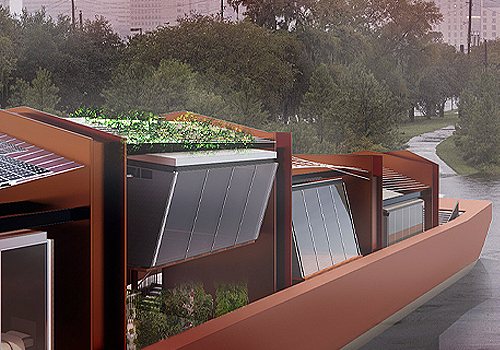
Entrant Company
Kaiwen Ku
Category
Architectural Design - Sustainable Living / Green


Entrant Company
BIBOTING INTERNATIONAL CO., LTD
Category
Product Design - Beauty & Cosmetic Products




